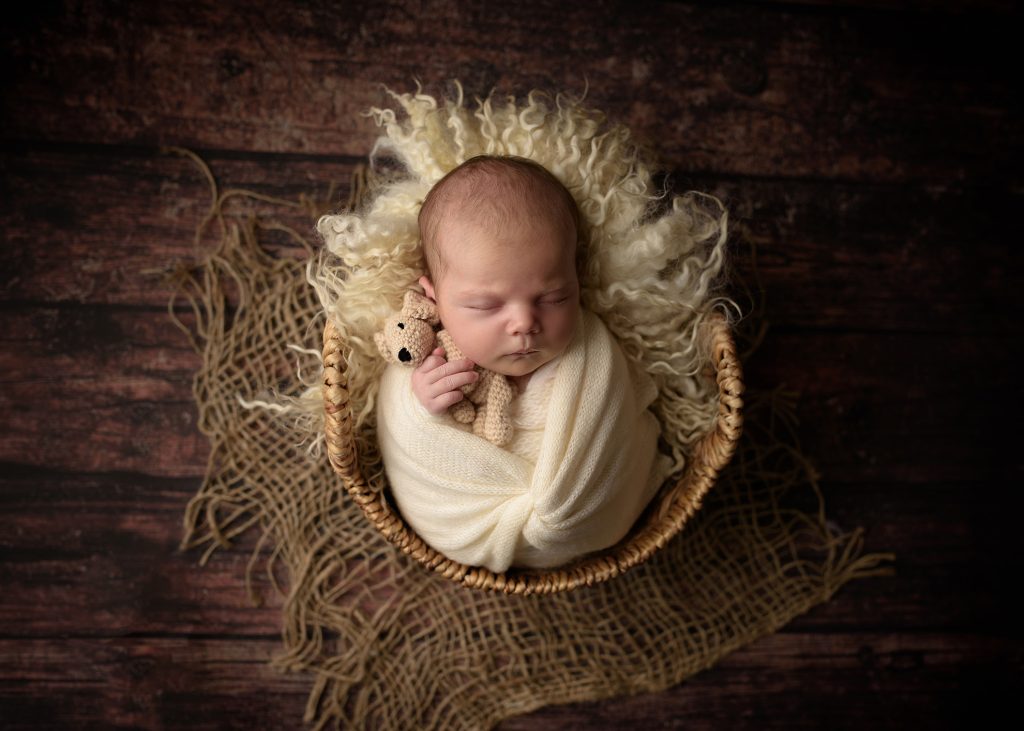Welcoming a newborn into the family is an exciting and joyous time, but it also brings about a multitude of questions, especially when it comes to their sleep patterns. How much sleep does a newborn need, and what can parents do to ensure their little one gets the rest they require for healthy development?
It is no secret that newborns only sleep for short bursts of time, ask any new parent and I am sure they will tell you how little sleep they are getting. However, your baby must get the sleep they need although knowing they are getting enough can be tricky.
In this article, we’ll explore the nature of newborn sleep and provide advice for parents navigating the world of infant slumber.
The basics of newborn sleep
Before you bring your baby home it is good to know that newborns inherently have an irregular sleep-wake cycle, and they often sleep for short periods throughout the day and night. On average, a newborn needs to sleep around 16 to 17 hours per day, however, this can vary from baby to baby.
All babies are different and have different needs, therefore it is understandable that their sleep patterns will differ. However, all newborns require the same level of care and attention. Newborns have small stomachs and need a lot of nutrition in frequent bursts, so they wake up frequently for feedings. Breastfed babies tend to sleep in shorter bursts and usually wake every 2-3 hours, whereas bottle-fed babies sleep for slightly longer stretches waking up around every 3-4 hours.
If your baby is sleeping for longer stretches and you feel that they are not feeding as often as they should, check with your healthcare provider for advice on whether you should be waking them for a feed. Usually, if they are making enough wet nappies and are gaining weight this is a good indication that they are being fed enough but it is always good to take advice from your doctor or midwife.
Newborns struggle to get themselves back to sleep once they have woken up. However, it is important to know that newborns do not have a set circadian rhythm initially, meaning they may sleep for a few hours, wake up for feeding and changing, and then go back to sleep.
Over time their sleep patterns develop more and they learn to sleep more during the night but those first few weeks can be challenging.
Newborn sleep facts you need to know
It can be helpful to understand newborn baby sleep behaviour, especially when you are running low on sleep yourself. Here are some great things to remember about newborns and their sleep:
Newborns are used to life in the womb
Your newborn baby has only known life in the womb, a place that is warm, dark, and comforting. Once they are born they are exposed to a bright and noisy world, which can be difficult for them.
To promote healthy sleep patterns for your newborn, keep the room dimly lit during nighttime feedings and create a consistent bedtime routine to signal that it’s time to sleep.
Newborns have no sleep patterns
Newborns can not differentiate the difference between night and day. As a result, they wake up throughout the night and it is difficult to soothe them back to sleep. You can help your baby to recognise daytime hours by exposing them to sunlight during the day. You can do this by taking them for a walk or just sitting with them near a window. However, it will take time for them to notice the difference so be patient.
Babies can tell you when they are tired
Although your baby can not talk yet there are many ways that they signal that they are tired. Look out for red eyebrows, yawning, your baby pulling their hair or ears, or your baby turning their face away or burying it in your chest. Once you learn your baby’s sleep cues you can preempt their tired cries and avoid wrestling an overtired newborn into sleep.
Helping your newborn baby sleep
Although your baby needs to wake frequently to feed, there are a few things you can do as a parent to help them get the most out of their sleep and ensure they are getting the rest they need.
Create a safe and comforting environment
Make sure the place your baby sleeps in is at the right temperature, dark, and quiet. You can buy a room thermometer to ensure you have the optimum temperature and install blackout blinds or curtains to cut out any unwanted light. If your neighbourhood has a lot of outside noise, a white noise machine can help to create a soothing sleep environment for your baby.
Set up a regular sleep routine
A relaxed sleep routine can help your baby understand when it is time to sleep and will be a great way to bond with your baby. You can start with small steps such as bathing them, dimming the lights, and playing comforting music just before bed. If you are consistent with the sleep routine, your baby will begin to recognise that it is bedtime, which in turn will help them to wind down before bed.
Be patient and flexible
Remember that both you and your baby are learning together. Be patient and be prepared to work around your baby’s sleep cues instead of trying to impose a strict sleep schedule. As well as ensuring your baby is getting enough rest, make sure you are taking care of yourself and you are getting time to sleep. Share responsibilities with a partner or ask friends and family for help.
Final thoughts
It is important to remember that every baby is different with a different set of needs. As a new parent, you should also be kind to yourself and understand that both you and your baby are adapting to a new life together.
With some patience and flexibility, you will be able to help your newborn navigate the first few weeks of life and develop healthy sleeping habits. A relaxed and comforting sleep routine is a great tool for your family and presents a great opportunity to spend some quiet time together before bed.
As parents, creating a nurturing sleep environment and being flexible in your approach will contribute to your baby’s well-being and your own as you embark on this beautiful journey of parenthood.



